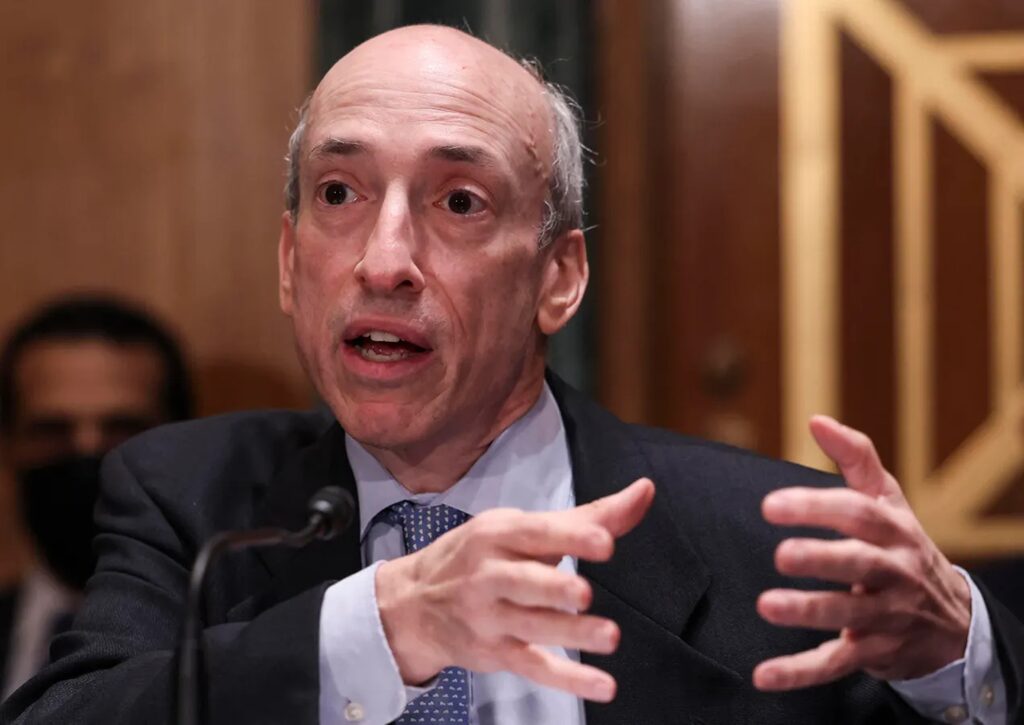Securities and Exchange Commission (SEC) Chair Gary Gensler has criticized the cryptocurrency sector for failing to offer investors the transparency seen in traditional financial markets.
In a CNBC interview, Gensler pointed out that most cryptocurrencies are considered securities and should comply with the corresponding regulations.
Gensler’s remarks follow a Wells notice issued to Robinhood’s crypto division, signaling a possible SEC enforcement action.
Similar notices have been previously sent to major players like Coinbase and the decentralized finance (DeFi) crypto exchange Uniswap.
The growing regulatory scrutiny on the cryptocurrency market underscores concerns regarding its integration with conventional stock markets.
During the interview, Gensler emphasized the SEC’s broad mandate to maintain legal standards across the financial industry. He highlighted the current litigation and enforcement activities aimed at protecting investors.
Gensler stated, “But stepping back from it, the field of crypto assets, without prejudging any one of them, many of those tokens are securities under the law of the land, as interpreted by the U.S. Supreme Court. So we follow that law.
“And you, the investors, are not getting the required or needed disclosures about those assets.”
The SEC oversees an immense $110 trillion capital market, with a significant portion represented by the stock market.
Despite cryptocurrencies constituting a smaller segment, they are notably affected by scams and a lack of adherence to securities laws.
Gensler has continually expressed concerns over crypto-related frauds and the insufficient regulatory compliance within the sector.
Addressing queries on the heightened focus on cryptocurrencies, Gensler underlined the media’s influence in shaping the dialogue around this issue.
He reaffirmed his dedication to broader market issues, including investor protection and market integrity, emphasizing that most cryptocurrencies qualify as securities.
Robinhood CEO Vlad Tenev has criticized the SEC’s approach, especially in the context of the agency’s recent activities.
Tenev argued, “Over the last three years, we’ve reached a state of regulatory onslaught that is harmful to American companies and consumers.
The SEC’s continued attack on crypto, coupled with recent rule proposals like the one related to predictive data analytics, mark yet another improper attempt by the administrative state to stifle innovation.”
